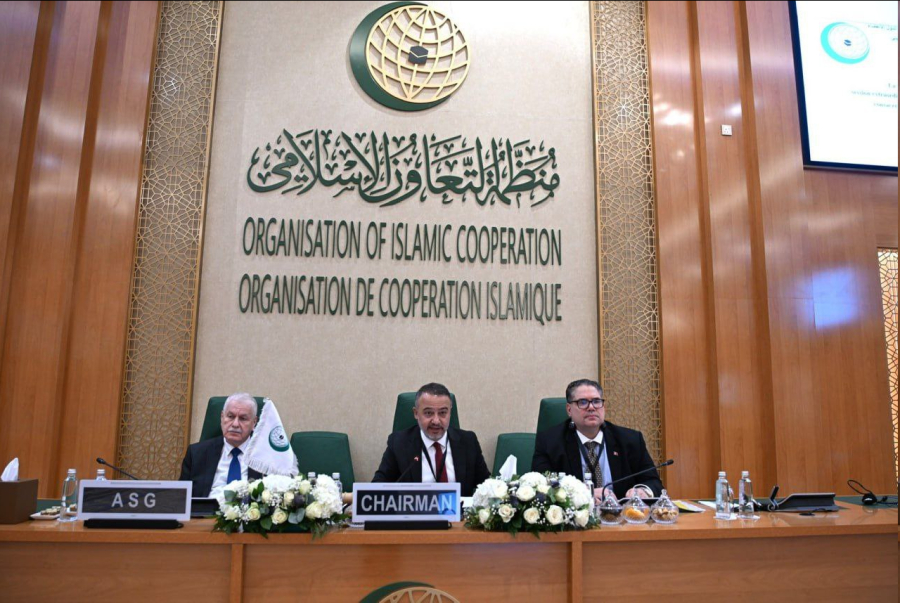The Jeddah meeting is the result of the Islamic and Arab countries’ sense of danger from Israel: The possibility of forming joint military and security mechanisms among the regional governments
Reza Mirabian, an expert on regional issues, referring to the capacity of the Organization of Islamic Cooperation meeting in Jeddah to address the Gaza crisis, said in an interview with ILNA: The difference between this meeting and previous meetings is that the countries of the region (especially Saudi Arabia, Egypt, Jordan, and even Turkey) feel the danger of Israel much closer than before. For example, if you look closely at the recent visit of Egyptian President Abdel Fattah al-Sisi to Saudi Arabia and his meeting with Mohammed bin Salman, the country’s crown prince, you will see that this trip was made in this direction; because today the flame of Israeli expansionism and the Gaza issue directly threatens the countries of the region. Even the attack that targeted the Islamic Republic of Iran is a warning that shows that this fire can spread to others at any moment.
Netanyahu’s recent statements have also added to these concerns by emphasizing his ideological belief in the creation of a “Greater Israel.” As a result, the current OIC summit is significantly different from the past, in that the countries of the region now see the possibility of danger closer than ever and seem to be taking more serious action this time. For example, Abdel Fattah al-Sisi has explicitly stated that Egypt will not accept the transfer of Gazans to the Sinai Desert under any circumstances, and his previous visit to Saudi Arabia can also be interpreted in this context. He continued: “On the other hand, developments in the political discourse of the region are also evident. For example, the recent interview with CNN by Turki al-Faisal, the former head of Saudi intelligence, was an important point against Israel. He declared that I have done my time; if I don’t say these things now, then when should I say them?” These words are very meaningful from someone whose father, King Faisal, played a role in the wars of 1967 and 1973 and was eventually assassinated by foreign agents, specifically the Israelis. This change in language shows that the countries of the region today feel the fire of the Israeli and American conspiracy much closer than in the past. For this reason, it seems that the results of this summit could go beyond simply issuing a statement. Although its media part will probably be limited to the same usual statements, the decisions behind the scenes could lead to practical and serious actions. An example is Egypt, whose army is on full alert, because it considers the transfer of Gaza residents to the Sinai Desert a direct threat to its national security; a threat that could cause serious problems given the presence of Salafi and Takfiri groups in Sinai. The political analyst clarified: Saudi Arabia is also under direct threat. In his “Greater Israel” plan, Netanyahu claims that part of this territory should include areas in Saudi Arabia; areas that have historical and religious significance, such as Medina and Islamic sanctuaries. Naturally, such claims have aroused Riyadh’s sensitivity. Therefore, even if they are not explicitly stated in official statements, we can expect that more serious measures are being formed behind the scenes. The reality of the matter is that today the countries of the region have reached a decision point. The continuation of Israel’s expansionism endangers the existence and security of all of them. The key question is whether these countries will move towards the formation of a collective security pact or not? There are signs of this possibility. Al-Sisi’s urgent and very important trip to Saudi Arabia is one of these signs. On the other hand, given the mood and atmosphere prevailing in the Egyptian army, such a move does not seem very unlikely.
He concluded by saying: "In the current situation, the countries in the region have realized that Iran acts as a barrier and obstacle against Israel. If it were not for the Iranian resistance, perhaps today it would be the turn of Saudi Arabia, Egypt, Jordan or Turkey. For this reason, unlike in the past when some Arab countries had their backs to America and Israel, they now see Iran at the forefront of the confrontation with Israel and are aware of its role. Overall, the consolidation of these interactions can be considered a serious change in the equations of the region. Although it may not bring tangible results in the short term, in the long term this process can be assessed as positive and forward-looking. The possibility of the formation of joint security mechanisms between the countries of the region, even at the military level, no longer seems unlikely. These developments are a sign that Arab and Islamic countries feel the danger of Israel closer to them than ever before and for this reason they are forced to move towards measures beyond issuing a statement."

